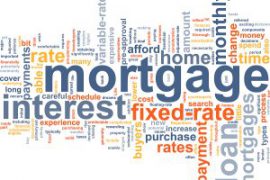In today’s housing market, saving enough money for a mortgage deposit in itself can be difficult for buyers. Combine this with increasing mortgage rates from major banks and economic uncertainties and the financial responsibilities appear daunting.
Fortunately, there are some ways you can cope with the rising costs and get the best rates on your mortgage. We cover some of these below to ensure you pave the way toward a more financially secure future.
Increase your down payment
The more money you’re able to put down on a deposit for a property, the better deals you’ll have access to – and the higher the chance lenders will approve it in the first place. Generally, the less you need to borrow, the lower your interest rates will be so it’s important to save up for a large down payment.
Overpay wherever possible
While it may seem inappropriate to pay more money even when funds are tight, making extra payments beyond your mortgage can significantly reduce the total interest you pay over the course of the loan. Whether it’s a little each month or a lump sum, overpaying decreases the principal balance at a faster rate.
Subsequently, you pay less interest over time and can shave years off of your mortgage term. However, first check with your lender to see what restrictions and penalties may apply.
Research different lenders
It’s important to shop around when it comes to mortgages to ensure you have a good selection of rates to look through. Even a slight difference in rates can result in major savings over the life of your mortgage. This is particularly important if you’re trying to get a mortgage on a new build as lender criteria tend to be stricter.
If you have your heart set on a new build home, it’s recommended that you approach a mortgage broker who can navigate the complexities of the process. Often, they’ll also have access to deals unavailable to the public.
Switch to an interest-only mortgage
To help free up some money, you could decide to switch to an interest-only mortgage for six months. Essentially, you’ll just be paying off the interest element of your mortgage and pause on paying back the amount borrowed.
Your monthly payment will be a lot less than normal and will depend on various factors such as the size and length of your mortgage and how much the remaining debt is. Once the six months is up, your monthly payments will increase again and will likely be higher.
Going interest-only is ideal for those needing short-term help; however, you will need to pay for it in the long run. For longer-term help, you may consider extending the term of your mortgage. Again, while this will reduce your repayments, it means you’ll pay much more in interest over time.
Before making any changes to your mortgage make sure to speak with a financial professional who can assess whether you’ll be making the right choice.





